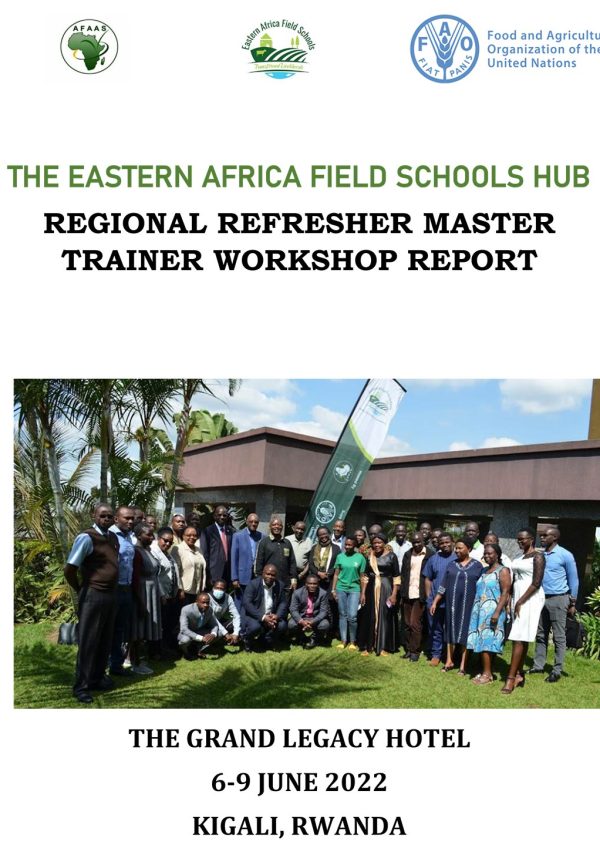CONTEXTUAL BACKGROUND
A three days’ workshop was organized at the Grand Legacy Hotel in Kigali, Rwanda, from 6-9 June 2022, with the purpose to provide learning and experience sharing platform to FS implementing teams and key partners of AFAAS/EAFSH with a view of equipping them with knowledge and tools to enable them offer quality FS backstopping services in Eastern African Countries with a particular emphasis on investment programmes.
The specific objectives were to:
Present to AFAAS/EAFSH stakeholders the operationalization of the EAFSH: (Current LoA outputs and activities; and key achievements, challenges and lessons from the previous LoAs)
Discuss and Refresh FS actors on key principles of FS approach, and other key topics
Share experience on implementation, institutionalization and scaling up of the Field Schools methodology
Review and update the Monitoring Evaluation and Learning (MEL) framework for FS M&E
Promote the use of the EA FFS Hub among FS actors for technical backstopping support in FS initiatives/interventions in the region while sharing experience on institutionalization of FS in EA region
The Participants
The workshop attracted Master Trainers, Program managers of Investment projects, technocrats from the Rwanda Agricultural Board (RAB), Field School focal points, NGO staff drawn from countries including Burundi, DRC, Ethiopia, Kenya, Rwanda, Uganda and Tanzania.
The topics facilitated and or discussed centred around sharing knowledge and new innovations on FS implementation. A complimentary field tour to selected two selected Field schools on the outskirts of Kigali city was organized. The detail on the program is indicated in Annex.
The workshop took the form of lectures, group discussions, plenary presentations, visual video presentations and hands-on field experiences. The envisaged Key outputs include:
▪ A common understanding on the operationalization of the EAFSH
▪ Participants refreshed on FS Approach and other key topics (such as micro scale irrigation technologies, digitization of FFS, sustainability, Institutionalization and farming as business, etc.)
▪ Draft case story and or success story presented
▪ Reviewed MEL framework and related tools developed
▪ Highlights, observations, issues and recommendations

